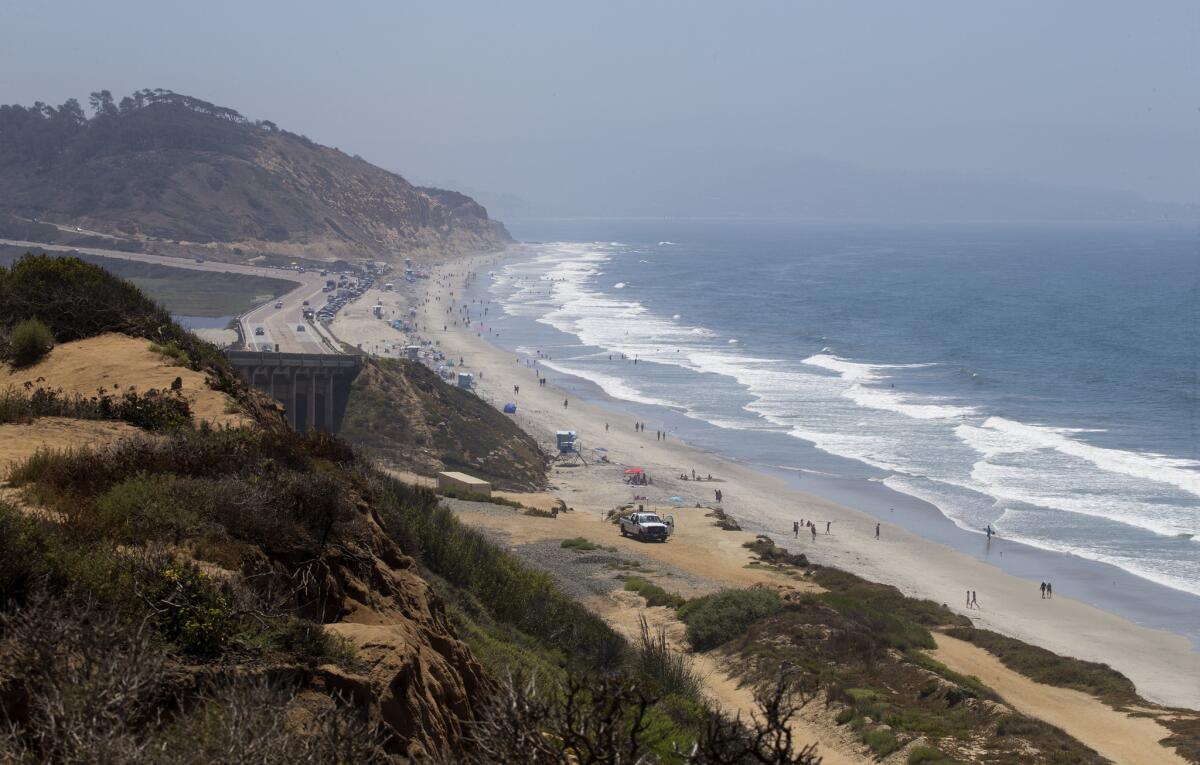Proposed legislation calls for more affordable overnight accommodations along the California coast

Going to the beach may become more affordable if state legislators pass an Assembly bill introduced this week to increase inexpensive lodging along the coast.
The measure by Assemblywoman Lorena Gonzalez (D-Chula Vista) calls on the California State Coastal Conservancy to create a program that would preserve and add to the number of low-cost hotels, motels and hostels in coastal areas, particularly on parkland.
The bill would require the conservancy to work with the California Department of Parks and Recreation and to develop a separate pilot program to explore the development, maintenance and operation of affordable accommodations by the private sector and nonprofit organizations.
“I grew up in a working-class family and got to enjoy the beach. There was easy access then,” said Gonzalez, who introduced the bill on Monday. “Now, people who grow up like I did don’t have that opportunity. Even for a middle-class family it can be cost-prohibitive to enjoy the beach.”
Equitable access to coastline has emerged as a major concern of organizations that represent low-income people of color and the California Coastal Commission, which is responsible for protecting public access to the state’s beaches.
According to the commission, a room at a budget hotel in beach areas costs between $135 and $260 a night during the summer — an expense that many low-income families cannot afford.
The commission also reports that since 1989, about 24,720 economy rooms have been lost along the coast because of hotel and motel closures and remodels. Such affordable accommodations now make up only 5% of the rooms available in coastal areas.
Recent polling by UCLA and San Francisco State University indicates that the expense of travel, parking and overnight accommodations is becoming too much for many potential visitors, making the coast inaccessible to ordinary people, especially low-income families that live inland.
“In our research we found that the cost of staying overnight at the coast can be a real burden for some Californians,” said Jon Christensen, a researcher at UCLA’s Institute of the Environment and Sustainability. Gonzalez’s bill “addresses our recommendations to find a way to stop the loss of low-cost overnight accommodations and increase the supply of rooms.”
Adding affordable units at state parks in coastal areas is probably the easiest to accomplish, Gonzalez said. About a third of the coast is state parkland, where there is already a good record of providing low-cost campgrounds and cabins.
“The most successful of our lower-cost accommodations are in state parks,” Gonzalez said. “We need to work within that success. We need public investment in campgrounds and cabins. The investment works. We need more of it.”
Robert Garcia, the founding director of the City Project, has long worked on equal access to California’s parks and recreational facilities. He praised the bill and offered to work with Gonzalez to make her legislation as strong as possible.
“We do agree with the thrust of this bill and the steps that are suggested,” he said. “But we think the devil is in the details.”
Garcia said the measure does not address people of color or minorities specifically, and the bill needs to stress compliance with state civil rights laws, including equal justice provisions recently added to the California Coastal Act, which is enforced by the Coastal Commission.
“If you use a euphemism, such as under-served communities or low-income communities, it is not effective,” he said. “People of color can be left behind.”
Two previous bills to increase affordable lodging at the beach, including one last year by Gonzalez, failed to pass at the committee level. Gonzalez said her current measure has been revised and is “ready to go.”
Follow me on Twitter @LADeadline16
More to Read
Sign up for Essential California
The most important California stories and recommendations in your inbox every morning.
You may occasionally receive promotional content from the Los Angeles Times.











